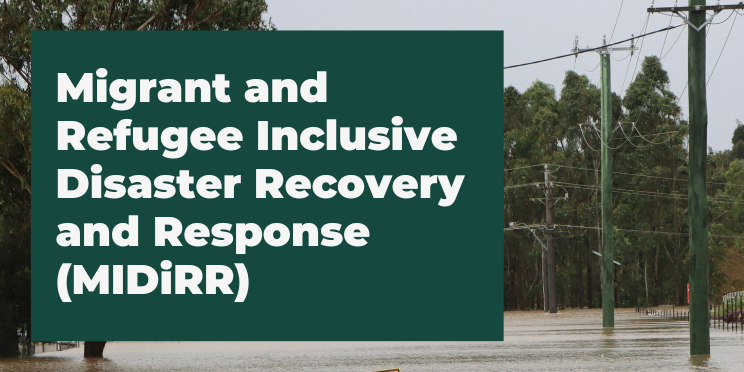
The Migrant and Refugee Inclusive Disaster Recovery and Response (MIDiRR) project is funded by the Department of Families, Fairness and Housing (DFFH).
The aim of MIDiRR is to build the capacity of Victorian Women’s Health Services to respond effectively to the specific health and wellbeing needs of migrant and refugee women who have been impacted by floods.
As part of the MIDiRR project, MCWH has developed a best practice guide "Best Practice Guide for Migrant and Refugee Inclusive Disaster Preparedness, Response, and Recovery.
The purpose of this resource is to outline a set of guiding principles to inform disaster preparedness, response and recovery efforts for migrant and refugee women, non-binary, and gender diverse people. Given the scarcity of data and literature on how disasters impact migrant and refugee communities in Australia, there is a need to provide clear guidance on what inclusive emergency management could look like.
The guide covers seven guidelines for inclusive preparedness, response and recovery:
- Community Engagement and Dialogue
- Community Leadership
- Empowering migrant and refugee women, non-binary and gender diverse people
- Targeted awareness raising
- Tailor emergency risk communications
- Ensuring equity in response efforts
- Facilitate activities that enable a gradual return to regularity and routine
- Enhance gender equality and transform unequal power relations
- Monitoring, evaluation and research.
